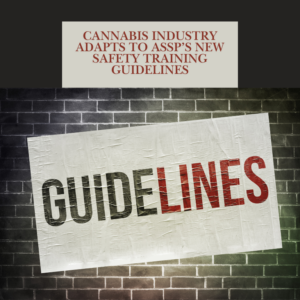Top Strategies for Effective Cannabis Risk Management

The cannabis industry is burgeoning, with increasing legalization and acceptance worldwide. However, this growth comes with significant risks, from regulatory compliance to operational challenges. Effective risk management is crucial for ensuring the sustainability and success of cannabis ventures. Here are top strategies for managing risks in the cannabis industry.
Understanding Regulatory Compliance
Navigating the complex regulatory landscape is vital for cannabis businesses.
Stay Informed on Regulations
Cannabis regulations can vary significantly by region and are often subject to change. Staying informed about local, state, and federal laws is crucial. Regularly review updates from regulatory bodies and industry associations to ensure compliance.
Implement Robust Compliance Programs
Develop comprehensive compliance programs covering all aspects of your operations. This includes licensing, product testing, labeling, and advertising. Regular training for employees on regulatory requirements is essential to maintain adherence and avoid penalties.
Financial Risk Management
Sound financial management practices are fundamental to mitigating risks.
Secure Adequate Funding
Ensure you have sufficient capital to support your business through various stages, from startup to growth. Explore diverse funding options, such as venture capital, private equity, and traditional loans, to find the best fit for your needs.
Establish Strong Financial Controls
Implement stringent financial controls to monitor cash flow, manage expenses, and ensure accurate financial reporting. Regular audits and transparent financial practices help mitigate the risk of fraud and financial mismanagement.
Operational Risk Mitigation
Operational efficiency and reliability are key to managing risks in the cannabis industry.
Develop Standard Operating Procedures (SOPs)
Create detailed SOPs for all operational aspects, including cultivation, production, quality control, and distribution. SOPs ensure consistency, quality, and regulatory compliance across your business activities.
Invest in Technology and Security
Leverage technology to streamline operations and enhance security. Implement systems for inventory management, seed-to-sale tracking, and cybersecurity to protect sensitive data and prevent operational disruptions.
Product Quality and Safety
Ensuring the quality and safety of cannabis products is paramount.
Implement Quality Assurance Programs
Develop rigorous quality assurance programs to monitor and maintain product standards. Regular testing for potency, contaminants, and purity is essential to ensure the safety and efficacy of your products.
Establish Recall Procedures
Have clear procedures for product recalls in case of quality or safety issues. This includes a communication plan to inform customers and stakeholders about the recall and steps to address the problem.
Market and Competitive Risks
Understanding market dynamics and competition is crucial for long-term success.
Conduct Thorough Market Research
Regularly conduct market research to stay informed about industry trends, consumer preferences, and competitor activities. This information can help you make informed strategic decisions and identify new opportunities.
Diversify Product Offerings
Diversify your product lines to meet varying consumer needs and mitigate the risk of relying on a single product. Explore different formats such as edibles, tinctures, and topicals to appeal to a broader customer base.
Building a Strong Organizational Culture
A positive organizational culture can significantly impact risk management.
Foster a Culture of Compliance and Safety
Encourage a culture of compliance and safety within your organization. Ensure that all employees understand the importance of adhering to regulations and company policies.
Promote Continuous Learning and Development
Invest in continuous learning and development programs for your employees. Regular training on industry best practices, regulatory updates, and professional development can enhance their skills and knowledge, contributing to overall business success.
Strategic Partnerships and Alliances
Forming strategic partnerships can provide additional support and mitigate risks.
Collaborate with Industry Experts
Partner with industry experts and consultants to gain insights and guidance on best practices, regulatory compliance, and market strategies. Their expertise can help you navigate challenges more effectively.
Establish Strong Supplier Relationships
Develop strong relationships with reliable suppliers to ensure the consistent quality and supply of raw materials. This can help prevent disruptions in production and maintain product standards.
Effective Crisis Management
Being prepared for crises can help mitigate their impact on your business.
Develop a Crisis Management Plan
Create a comprehensive crisis management plan that outlines steps to take in various emergency scenarios, such as product recalls, regulatory investigations, or supply chain disruptions.
Train Employees on Crisis Response
Ensure that all employees are trained on the crisis management plan and understand their roles and responsibilities in an emergency. Regular drills and simulations can help keep everyone prepared.
Effective risk management is essential for the sustainability and success of cannabis ventures. By understanding regulatory compliance, managing financial and operational risks, ensuring product quality and safety, addressing market dynamics, building a strong organizational culture, forming strategic partnerships, and being prepared for crises, cannabis businesses can navigate the complexities of the industry and thrive in a competitive landscape. Implementing these strategies will not only mitigate risks but also position your business for long-term success.











